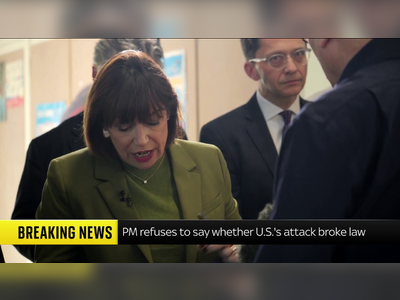
ECB to raise rates again — but the real focus is on what Lagarde says
The European Central Bank is almost certain to raise interest rates by half a percent on Thursday, but muddled communication leaves big questions over how much more economic pain the ECB will inflict in its battle against inflation.
So rather than focusing on February's rise itself, governments and investors are already looking ahead to whether ECB President Christine Lagarde doubles down on previous signals for another half-percent hike in March and what words she uses to describe any future additional tightening.
The key rate on the deposit facility is now 2 percent and is expected to rise to 2.5 percent at Thursday's policy meeting.
Fresh inflation and growth projections will be available by the time of the next ECB meeting in mid-March and the hope is that they will show price rises declining significantly faster than December’s forecasts.
This would strengthen the case made by those policymakers calling for more moderate hikes and who warn against causing unnecessary pain in the eurozone economy.
ECB policy guidance in December spoke of “another 50-basis-point rate hike at our next meeting [February] and possibly at the one after that [March].”
But that was quickly called into question by a faster-than-expected decline in headline inflation coupled with a media report saying that slower tightening in March was gaining support among central bank policymakers.
The pace of tightening could be slowed in March, said Barclays economist Silvia Ardagna. “There could be a divergence of views at the February 2 meeting that could intensify in the run-up to the March meeting, when the ECB staff will produce a new set of macroeconomic forecasts,” she said.
Despite all that though, most analysts expect Lagarde to signal another half-percent rise for March.
Headline inflation remains significantly above the 2 percent target and core inflation, which strips out volatile factors such as energy and food, considered a bellwether for inflation trends ahead, may not yet have peaked. Moreover, technical troubles at Germany’s statistics office mean that inflation data is less reliable and less likely to spark any shift.
And in a further argument that the region can handle rate hikes, the economy has proven more resilient than feared with preliminary Eurostat data on Tuesday showing that the region expanded by 0.1 percent in the final quarter, defying expectations of contraction.
Hawks on the Governing Council have been out in full force to stress the inflation battle has not been won. Perhaps more importantly, the pushback from the doves has remained fairly muted. Gabriel Makhlouf, seen as a pragmatic dove, even came out in favor of another big move in March.
Dropping the previous guidance without a shift in the data also risks hurting Lagarde’s credibility at a time when it is already bruised.
 Headline inflation remains significantly above the 2 percent target and
core inflation, which strips out volatile factors such as energy and
food
Headline inflation remains significantly above the 2 percent target and
core inflation, which strips out volatile factors such as energy and
foodWhile Berenberg Economics economist Holger Schmieding said he expected the ECB to confirm that it is progressing at a “steady pace” and so will raise rates by half a percent in March, he said doves may set a mark by softening the official language on rates still having to rise “significantly” further.
“Although it is quite possible that the ECB will tweak the wording, we consider it more likely that the bank will not change this sentence materially yet,” he said.
Experts expect the ECB to raise rates to somewhere between 3.25 percent and 3.75 percent from the current 2 percent.
Whatever the central bank has in mind, it should work on its “suboptimal” communication, said ING economist Carsten Brzeski. “It would help if the ECB were to clarify its reaction function and send a message that has a longer shelf life than just a few days,” he said.











